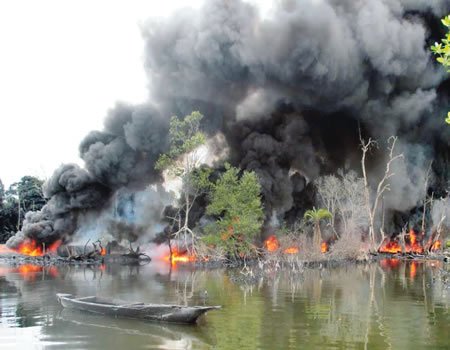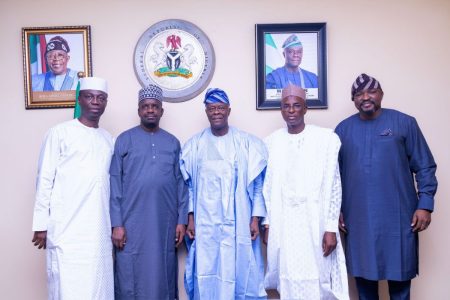
Oscarline Onwuemenyi
19 February 2017, Sweetcrude, Abuja – The Executive Secretary of the Nigerian Content Development and Monitoring Board (NCDMB), Engr. Simbi Wabote has disclosed plans by the agency to extend its local content compliance oversight beyond the upstream sector of the nation’s oil and gas industry.
Engr. Wabote, who made the disclosure at a briefing with the media at an event to mark his 100 days in office, in Yenagoa, Bayelsa State, said his management was determined to remove opaqueness, rumours and insinuations often associated with oil and gas operation.
He said, “The focus of the Board compliance monitoring had been largely on the upstream sector operations of the industry, mainly because of the higher percentage spend in the sub-sector. In 2017, we have reorganised our monitoring structures and will pay much more attention to the implementation of Nigerian Content in the midstream and downstream sectors of the industry.”
Wabote also noted that the Board has have developed a Community Content Guideline which provides pragmatic steps for incorporating and engaging community contractors as a critical delivery point for Nigerian content development.
According to him, “This guideline was born out of the necessity to boost peace and security in the Niger-Delta and address the lingering squabbles between host communities and operating and service companies over participation in oil and gas activities. Sections 25, 26, 27 and 28 (1) & (2) of the Nigerian Content Act provides for the operator to maintain a level of presence in communities where projects are located.
“The sections also mandate participation of community entrepreneurs in activities of operations throughout projects life cycle.
“As you may recall, President Muhammadu Buhari launched the Petroleum Industry Roadmap on 27th October 2016 to revitalise the Oil and Gas industry. A key component of the Petroleum Industry Roadmap is to “Deploy 30% of business opportunities from operating companies to communities.” The Board’s Community Content Guideline sets out strategies to realise this target,”
He added that “We have also already aligned our Capacity Development Initiatives to support the delivery of the aspirations encapsulated in the Petroleum Industry Roadmap.”
The NCDMB boss explained that the Board has also commissioned a baseline study on the Nigerian Content implementation. “This was intended to review how well we implemented the Act in the past six years, where we made progress and where we need to up the game. We have kicked off the project with the support of our consultants.
“The outcome will help us develop a 5-year strategic roadmap that will guide the new wave of Nigerian Content development and implementation. The roadmap will also enable the Board incorporates the Federal Government’s policies captured in the Petroleum Industry Roadmap and other change initiatives of the current administration,” he added.
He also disclosed plans by the NCDMB to organise a Nigerian Content Opportunities Fair in March this year. According to him, the objectives are to showcase opportunities in upstream, midstream and downstream sectors and present available capacity in-country.
“The fair will enable Nigerian companies and manufacturers to tailor their business development strategy towards exploiting the opportunities thereby increasing value retention. It will provide the multinationals an opportunity to link up and utilise in-country capabilities as against importation of goods and services,” he stated.
Buttressing the new focus on the midstream and downstream sector sectors, the General Manager, Corporate Services and Logistics of NCDMB, Mr. Abdulmalik Halilu noted that the Board has made significant achievements in the upstream sector including resolving the lingering issue of a protracted contracting cycle within the industry, among others.
“We feel that the time has come to turn our focus to the midstream and downstream sectors to ensure that we achieve effective Nigerian content implementation, which we believe will
Halilu admitted that, presently, there was no way of measuring the impact of the non-compliance on the midstream and downstream sectors, given that there has not been any assessment done on these sectors throughout the history of oil production in the country.
He added, “This is why we think it is imperative for the Board to expand its searchlight to these sectors and ensure that we maximise the opportunities in the sectors for the development of the country.”



